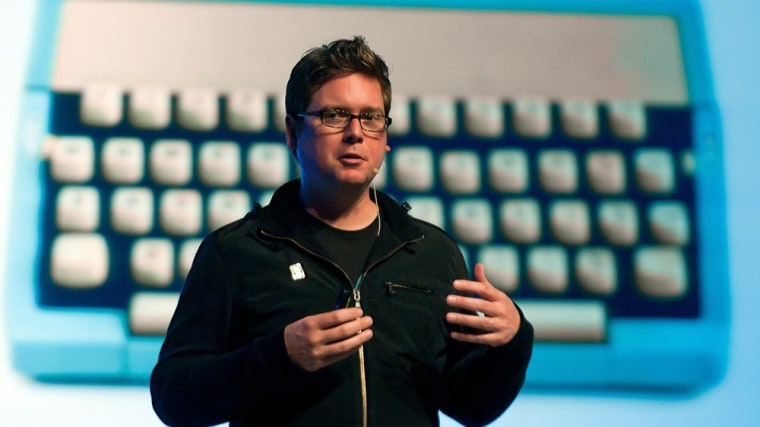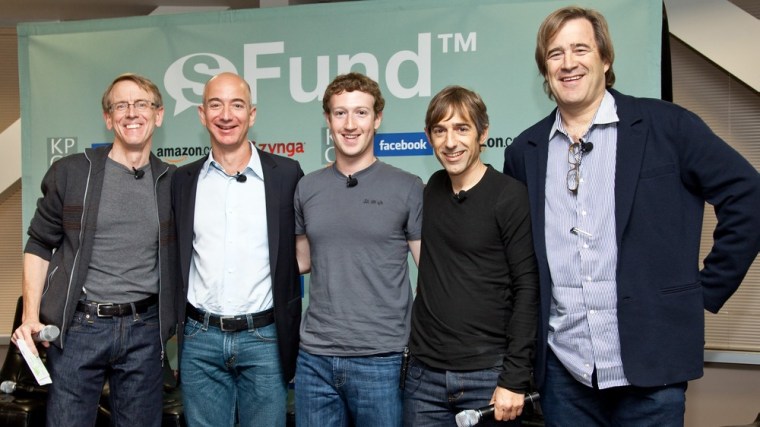Entrepreneurs in the tech field possessing innovative ideas were some of the best story lines of 2010. Who would have thought you could become a multimillionaire by selling coupons on the internet? And because of the high level of success companies like Groupon have seen in 2010, 2011 could prove to be an even more profitable year for these tech startups by way of a buyout or an IPO. So, who's poised to take the leap from millionaire to billionaire this year?
Andrew Mason — Groupon
Each day, Groupon subscribers receive a coupon for a local business in their city. If a minimum number of people purchase the coupon within a 24-hour window, the deal goes through. Buyers print off the coupon themselves, and they can use the deal whenever they see fit. Since 2008, founder and CEO Andrew Mason's deal-a-day website has grown to earn an estimated $350 million this year.
With the Chicago-based company valued at an estimated $1.35 billion, many are wondering how Mason plans to continue to grow the business. It was rumored in October that Groupon turned down an offer from Yahoo! of $3 billion to $4 billion. More recently, Google was said to have offered $5.3 billion but also was turned away. So, if they're not looking for a buyout, what's next? Rumors are swirling that Mason and his investors could be looking to go public in the near future.
Mark Pincus — Zynga
San Francisco's Zynga is a company known for making internet games like FarmVille and Mafia Wars that became popular on social networking sites like MySpace and Facebook. Zynga game users buy game credits through PayPal or a credit card to use the games, and the company also makes money by partnering with other businesses that offer services. Although Zynga was founded just three years ago, CEO and co-founder Mark Pincus has grown the company significantly, with more than 1,300 employees internationally and 13 studio offices around the world. Although there haven't been any rumors of a buyout, Pincus has steadily increased interest in his company by selling off shares to private investors.
With a rumored valuation of about $5 billion, Digital Sky Technologies, a Russian company, bought $180 million worth of shares in Zynga in 2009. This year, both Softbank and Google bought a combined $300 million interest in the gaming company. So what's in the cards for these gamers — further investment, a buyout or a public offering? We'll just have to wait and see.
Jeremy Stoppelman and Russel Simmons — Yelp Inc.
Two of PayPal's former software engineers, Jeremy Stoppelman and Russel Simmons, make up the founders and senior management team of the hugely successful Yelp web service. Yelpers are those who contribute to the website, which sets up a system allowing community members to review restaurants and businesses. Searchable by non-users, Yelp works as an interactive Yellow Pages, with maps local to Canadian and American neighborhoods.
Although the value of the company is unknown, Yelp is reported to have $50 million in revenue for 2010. Is a buyout on the horizon for this growing company? It's possible, although whether Stoppelman and Simmons have the potential to become billionaires in 2011 is less certain. In 2009, the two reportedly turned down an offer from Google for $500 million to acquire the business.

Jack Dorsey, Evan Williams, Biz Stone and Dick Costolo — Twitter
If you don't know what Twitter is, then you live under a rock. The social networking site that requires its users to update the world in 140 characters or less has seen dramatic growth this past year, with everyone from children to celebrities tweeting about their comings and goings. Twitter has an estimated 190 million users — not bad for a site that was originally thought to be a less interesting version of Facebook.
Founders Jack Dorsey, Evan Williams, Biz Stone and CEO Dick Costolo have brought in approximately $150 million this year in revenue. Growth will likely continue, with heavy investment coming from a variety of venture capital firms and more opportunities for companies to pay for advertising on the site. Although Apple was rumored to express an interest in purchasing Twitter in 2009, it remains a private company. Its size and plans for growth have many wondering if an IPO could be part of this tech company's future.
Philip Rosedale — Linden Lab
San Francisco's Linden Lab is known for the wildly popular Second Life, which is a virtual reality game that offers users a chance to live a totally different life (or the same, if they choose) from their own. Using a self-designed avatar, residents of Second Life participate in the community by doing activities or socializing, and they can even buy property or trade services.
Linden Lab's CEO and founder Philip Rosedale started the company in 1999, and he is known for creating a reward-based corporate culture that encourages its 245 employees to send "love" to one another when they perform well. The odd corporate culture is extended to financial reporting - the company's earnings and valuation are unknown. Despite this, Microsoft was recently rumored to be interested in acquiring Second Life, although neither company has confirmed negotiations.
The bottom line
Will we see a surge in tech-based innovators turned billionaires in 2011? With many talking about the potential for another boom in the technology industry, that's where we'll be watching this coming year.
